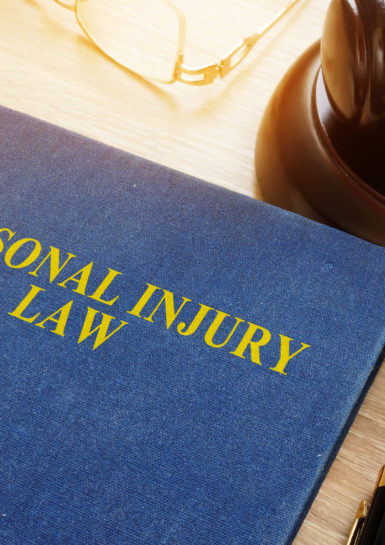Comparative Negligence
Personal Injury Lawyer
Comparative negligence is a doctrine that assists the court in awarding damages to the plaintiff when the plaintiff shares some fault in the accident. If both the plaintiff and the defendant were negligent in bringing about the plaintiff’s injuries, the jury will allocate fault to each party. This will usually be done as a percentage of fault; for example, the jury might find that the plaintiff was 25% at fault while the defendant was 75% at fault. The defendant would then be responsible for paying 75% of the total damages awarded to the plaintiff. Another way of phrasing this is to say that the damages the defendant must pay are reduced by the percentage the plaintiff is at fault for the accident.
Comparative fault must be raised by the defendant as an affirmative defense in a lawsuit. Defense attorneys will use comparative negligence to try to limit their client’s liability to the smallest amount possible. The defense will have to prove the comparative negligence of the plaintiff just as the plaintiff must prove the defendant’s negligence.
Comparative negligence is also commonly used by insurance companies to assign fault in car accidents. The insurance companies then litigate to make sure that they are only responsible for paying damages caused by their own client.
Types of Comparative Negligence
There are three main types of comparative negligence doctrines, which depend on the percentage of fault the jury assigns to the plaintiff. A defendant considering asserting comparative negligence as an affirmative defense should consult a personal injury lawyer or check their state’s laws to determine which doctrine is followed in their state.
The doctrine of pure comparative negligence permits a plaintiff to recover damages from the defendant even if the jury determines that the plaintiff was 99% at fault for the accident. In that case, the plaintiff would recover 1% of the damages awarded from the defendant. Thirteen states apply this doctrine when the defendant asserts comparative fault.
The doctrine of modified comparative negligence only permits a plaintiff to recover damages from the defendant if the jury finds the defendant to have a certain percentage of fault in the accident. Ten states set this percentage at 50%, meaning that the plaintiff cannot recover damages from the defendant if they were 50% or more at fault for the accident. Twenty-three states set this percentage at 51%, and plaintiffs can still recover damages as long as their fault is lower than 51%.
Four states, plus Washington D.C., use the doctrine of pure contributory negligence. This rule bars the plaintiff from recovering any damages from the defendant if they were even 1% at fault for the accident.
It should be mentioned that only one state, South Dakota, recognizes the doctrine of slight/gross negligence. Under this doctrine, the jury does not assign fault percentages, but instead assigns “slight” and “gross” fault to each party. The plaintiff will be able to recover more damages if their fault contribution is found to be “slight” and the defendant’s fault contribution is found to be “gross.” Gross negligence is defined as reckless and conscious disregard for the plaintiff’s safety.
Thanks to Eglet Adams for their insight on comparative negligence.

